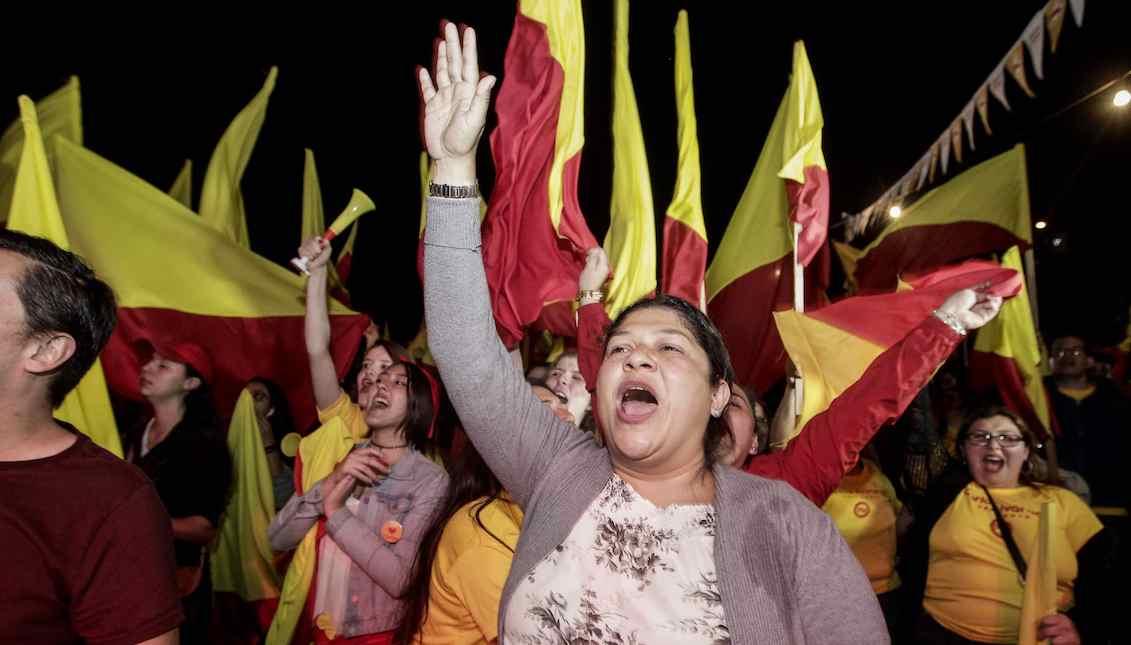
Where is Latin America heading?
The Latin American political scene seems to be taking a definitive turn towards more conservative positions, according to the results of the last elections and…
After decades under the domination of populist governments, Latin America shows signs of weariness and courage to radically change its political trajectory.
Repeating its traditional swing between the right and the left, Latin American countries like Chile have decided to give a new opportunity to the conservative candidates, trying to get new results of old campaigns.
Sebastián Piñera, who was president during the period 2010-2014, has been the winner in the Chilean elections, giving a new victory to the conservative center-right tradition of the Partido de Renovación Nacional.
Likewise, and during the past weekend, Costa Rica has been the epicenter of the political revolution in Latin America, when the evangelical preacher Fabricio Alvarado was declared the winner in the first round of the presidential elections.
Fabricio Alvarado will face the official candidate Carlos Alvarado, who not only bears the same name but is also a journalist. Both candidates, however, represent polar opposites in politics, since they have radicalized public opinion about religious conservatism.
As the newspaper El País reported, Fabricio represents "the weight of the religious tradition in Costa Rica", which has manifested itself through the alliance between evangelical and Catholic groups against the ruling of the Inter-American Court of Human Rights in favor of same-sex marriage.
Consistent with this sense of renewal, Ecuador held on Sunday a referendum called by President Lenin Moreno that ends the presidential re-election, avoiding the return of former president Rafael Correa in 2021.
According to the newspaper El Mundo, "the results, with the majoritarian 'yes' in all questions, mark the end of a political stage - the 'Citizen Revolution' - which lasted 10 years."
Similarly for the Bolivian opposition, what happened in Ecuador is "a warning to populism in Latin America," as highlighted by the president of the National Unity Party (UD) of Bolivia, Samuel Doria Medina: "The stage of populism in Latin America, marked by authoritarian caudillos, by waste, and corruption, is coming to an end. A new path is possible," he wrote on Twitter.
RELATED CONTENT
Doria Medina also referred to the same phenomenon that occurred in his country during 2016, where the majority vote "denied the president of Bolivia, Evo Morales, the possibility of attending a fourth consecutive term," EFE recalls. However, a ruling at the end of 2017 of the Constitutional Court of Bolivia granted Morales the possibility of indefinite re-election openly violating the constitution of the country.
Likewise, Colombia will define its new political panorama during the month of May, in unprecedented elections where an old radical group has cast itself on the ballots, nominating the leader of the FARC, Rodrigo Londoño (better known as Timochenko) as a "revolutionary" candidate. To counteract it, Colombian politicians are divided between those who supported the disarmament process and those who didn’t, including Uribe's Iván Duque and conservative Marta Lucía Ramírez, and the agreement's main negotiator, Humberto de la Calle.
But there is still an important leftist axis in the region. In Paraguay, for example, the April 22 elections foresee a blow to the right-wing party that has governed for the last 70 years (Colorado Party) in favor of the center-left alliance formed by the Liberal Party and the Guasú Movement of former President Fernando Lugo, according to the BBC.
Similarly, Mexico seems to tilt the balance in favor of the leftist Andrés Manuel López Obrador (AMLO) who is backed by a coalition of his National Regeneration Movement, and who will have to face the candidate of the conservative Frente por México Party Ricardo Anaya.
And finally, Brazil is still stuck in a leftist movement condemned for corruption, supporting (according to polls) former President Luiz Inacio Lula da Silva, who is in court for embezzlement but insists on participating in the October elections.
In one way or another, this year will define the political structure of a region stagnant by "revolutionary" and populist promises whose outcome could counteract the emergence of a similar phenomenon at the north of the border.











LEAVE A COMMENT:
Join the discussion! Leave a comment.